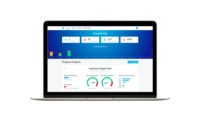At its early October meeting, the Denver Board of Water Commissioners voted to increase water rates for 2012 to provide funding for the utility’s capital projects. The new water rates will take effect in January and will help the utility stay on top of projects to address its aging infrastructure.
The water rates for 2012 will reflect a 5.5% increase for all customers. Denver Water says the effects of the proposed changes on customer bills will vary depending upon the amount of water the customer uses and whether the customer lives in Denver or is served by a suburban distributor under contract with Denver Water.
The more customers use, the more they will pay. Under the current rate proposal, average Denver residential customers would see their bills increase by $19.43 a year — an average of $1.62 per month. Typical suburban residential customers served by Denver Water would see an increase of $34.11 per year — an average of $2.84 per month. Commercial, industrial and government customers also would see a 5.5% increase.
“The increase is about half of what the board had anticipated last year,” said Angela Bricmont, director of finance. “We looked very closely at our capital plan and found a balance between projects that could wait and projects we had to undertake to avoid putting reliable service at risk. We also implemented additional efficiency measures throughout the organization.”
Next year, the utility’s major projects include its pipe rehabilitation and replacement program to improve water flow, water quality and pipe integrity in communities; the expansion of its recycled water system, which helps free up drinking water and extend water supplies into the future; the completion of major valve projects at Cheesman and Williams Fork dams; and the protection of the watershed through its From Forests to Faucets Partnership with the U.S. Forest Service.
Denver Water owns and maintains more than 3,000 miles of distribution pipe — enough to stretch from Los Angeles to New York — as well as 12 raw water reservoirs, 22 pump stations and four treatment plants. Ongoing rehabilitation and replacement of infrastructure is needed throughout the water distribution system, much of which dates back to post-World War II installation or earlier.
The utility plans to expand its system capacity over the next decade to meet the future needs of its customers by expanding the utility’s recycled water system, enlarging Gross Reservoir by 18,000 acre-feet, developing gravel pits that store reusable water, and exploring ways to work with other water providers to bring more supplies to its system.
Rates for Denver Water customers living inside the city remain among the lowest in the metro area, while rates for Denver Water residential customers in the suburbs would still fall at or below the median among area water providers.
“We are sensitive to the economy and the need to spend our customers’ dollars wisely,” Bricmont said. “We remain committed to organization-wide efficiency, sound financial management and fiscal responsibility. Our AAA bond rating allows us to build projects at lower cost — savings we are able to pass along to our customers.”
The water department is funded through rates and new tap fees, not taxes. Its rates are designed to recover the costs of providing reliable, high-quality water service and to encourage efficiency by charging higher prices for increased water use. A significant portion of Denver Water’s annual costs do not vary with the amount of water sold and include maintenance of the system’s distribution pipes, reservoirs, pump stations and treatment plants. Denver Water also examines and adjusts its capital plan as necessary each year.
Details of the 2012 rates can be found on Denver Water’s website at denverwater.org.


Post a comment to this article
Report Abusive Comment